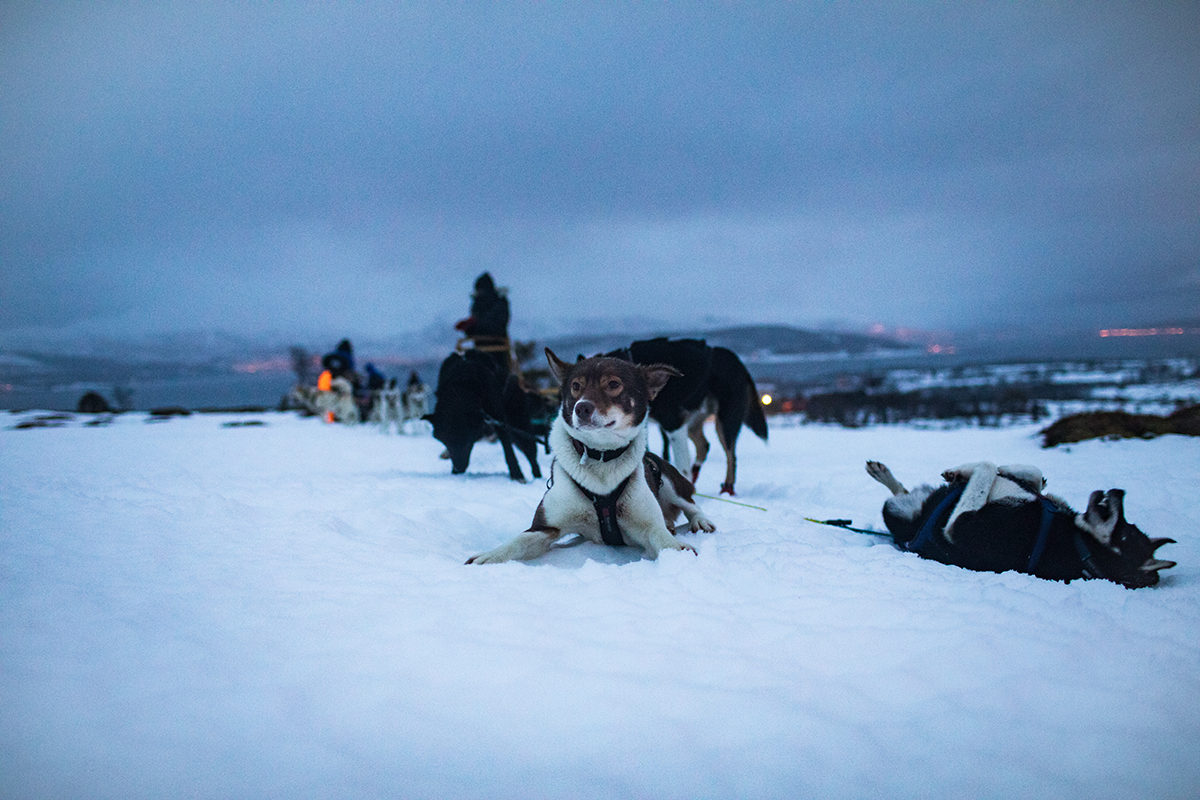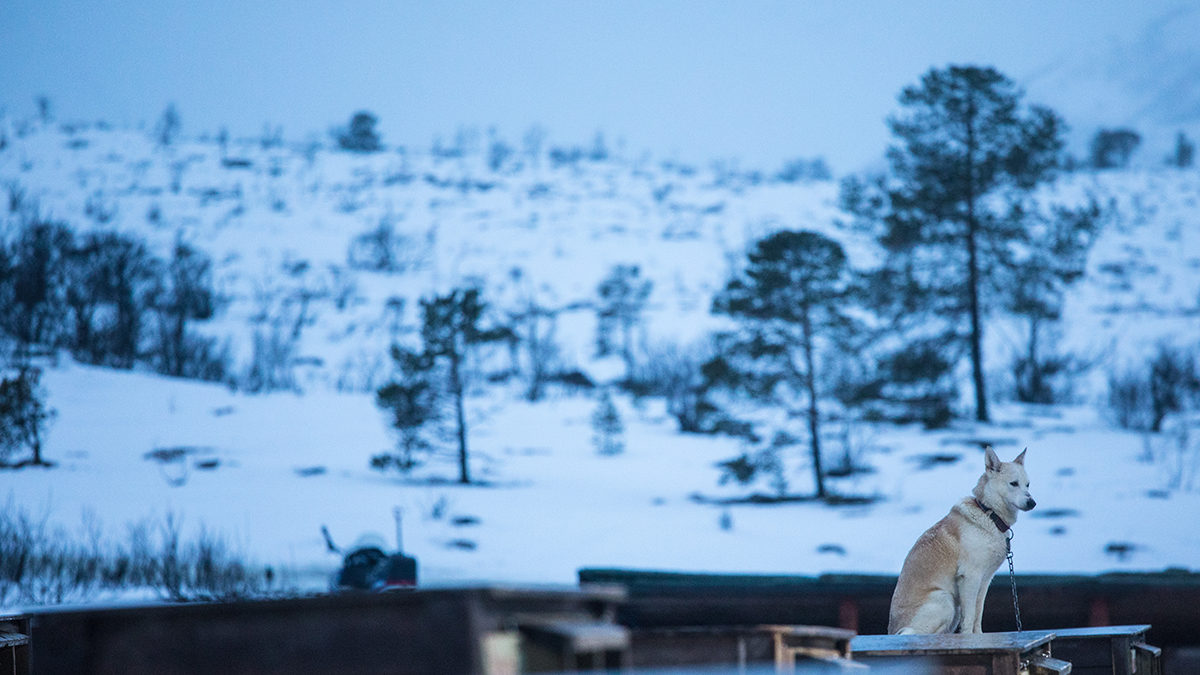American journalist Krithika Varagur grew up without ever knowing true cold. Over the years, her work took her to Indonesia to report from the world’s third largest democracy, a move that was, in her own words, “inspired a bit by the naturalist travelogue of Alfred Russel Wallace.” Afterwards, she transitioned to London as a Fulbright scholar, where she started work on her first book of nonfiction.
But as cautionary tales of a rapidly changing climate have continued to dominate news cycles, Varagur has felt the pull of the North—of freezing temps and frosty snowscapes—to experience what she longingly calls “pure, distilled winter” in issue 08 of Here Magazine. In search of exactly that, Varagur traveled to the Arctic city of Tromsø, Norway, where she learned how climate change is affecting the region and did her best to live out all her wildest, wintriest dreams—husky puppies very much included.
Tove Sørensen started Kvaløya's Villmarkssenter, meaning "Wildlife Center," thirty years ago with six huskies.

Today she has 303 of them and has been a competitive dogsled racer for 21 years.

"Racing is like freedom," says Sørensen. She competed in Alaska's Iditarod race in 2006 and has her eyes on a repeat in 2020.

The dogs are Alaskan huskies, a hybrid breed known for their racing speed.

They are socialized almost from birth with visitors to the Center, who can play with litters of siblings named thematically after things like the four seasons.

Guests can also take mini-packs of huskies for a dogsled joyride on Kvaløya, an island in Tromsø, supervised by the Center's watchful staffers.

With the Much Better Adventures crew, you'll relax around a campfire, fill up on a dinner of traditional Sami foods, and wait for the Northern Lights to appear overhead.

You’ll spend the night in a warm, communal Sami tent (called a lavvu) usually made of canvas, before waking the next morning to a delicious breakfast.



The Aurora Borealis in northern Norway.

"I just hope to put words to a feeling that I think a lot of us modern travelers have," says Varagur, "and if people are more conscious of climate-motivated travel and feel like they can engage with the world as it is a tiny bit more, that would make me happy."


